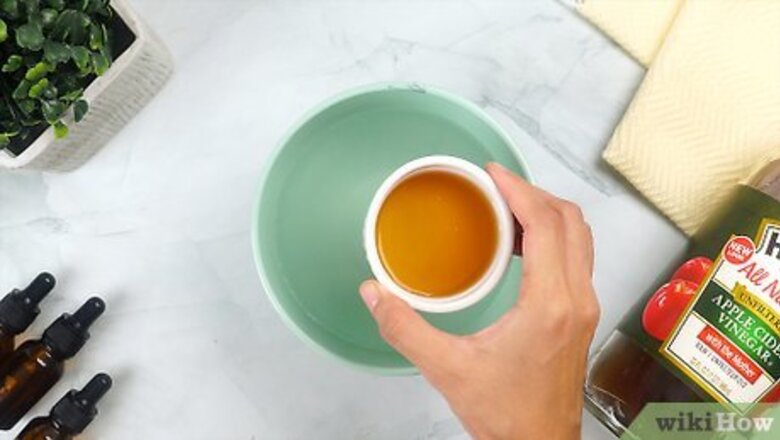
views
Apple cider vinegar
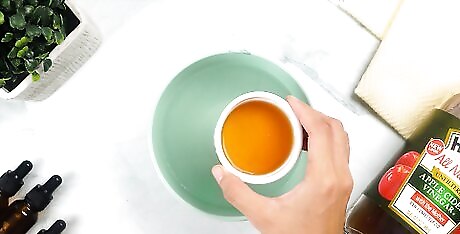
Dilute it with water and use it as a bacteria-busting toner. Start with a freshly washed face. Then, mix 1 part ACV with 4 parts water in a clean bottle or container. Pour a small amount of the mixture on a cotton ball and pass it gently over your face once a day to tone your skin. Spot test the mixture on the back of your hand before using it on your face. Start slowly with 1-2 applications a week. If your skin tolerates it well, you can work up to daily use.
Green tea bags
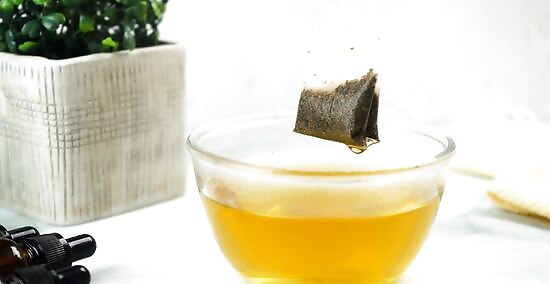
Green tea can soothe breakouts and kill acne-causing bacteria. Grab a green tea bag, heat up water like you normally would, and pop the bag in the water to brew the tea. When you’re done, take out the bag and let it cool to room temperature. Then, put the bag directly on your breakout and leave it for 20 minutes. Do this once a day until your pimples clear up. A second option: let the brewed green tea cool off, soak a washcloth in it, and place the washcloth over your face for 20 minutes. Some studies have shown that topical applications can help to reduce acne. You can also shop for creams, lotions, or gels containing 2%-3% green tea. Just apply the product to the affected area twice a day.
Aloe vera gel
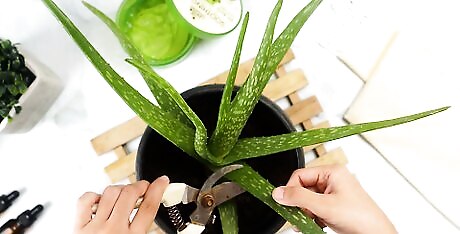
Gel straight from the plant is best but store-bought gel works, too. If you have access to an aloe vera plant, carefully cut open a leaf, scoop out the gel with a clean spoon or finger, and apply the gel directly to the affected area. The gel is moisturizing so your skin will soak it right up. Do this twice a day—once in the morning, once in the evening. Studies show that aloe vera gel works best for mild acne. It’s less effective for severe and cystic acne. This technique is even more powerful if you use it alongside prescription acne medication like Retin-A. Aloe vera is effective because it contains antioxidants, enzymes, and vitamins, along with anti-inflammatory properties.
Tea tree oil
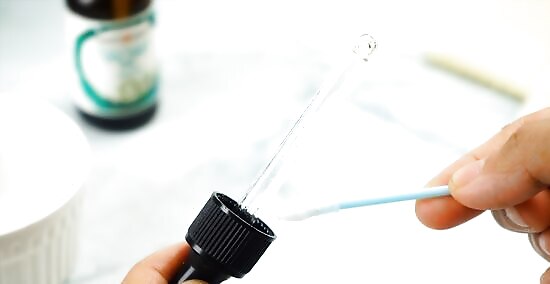
Spot treat pimples with diluted tea tree oil or use a 5% gel preparation. Soak a cotton swab in water, open the tea tree oil bottle, and gently run the swab along the inside of the cap to pick up a tiny amount of oil. Then, apply the diluted oil directly to your pimples each night after washing your face. Tea tree may help clear up mild to moderate acne. Since tea tree oil can make your skin sensitive to sunlight, it's best to apply it before bed and wash it off in the morning. Some experts say undiluted tea tree oil is safe to apply topically in small amounts. Try the diluted technique first until you know how your skin reacts. Tea tree oil is toxic if you swallow it, so be careful!
Egg white mask
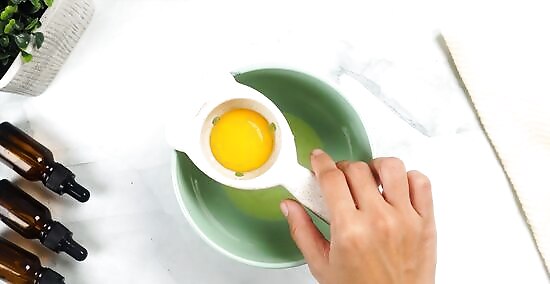
Try egg white mask. Start with a freshly washed face. Separate the egg yolk from the white and beat the white with a fork until it gets frothy. Then, use your fingers or a cotton ball to apply a thin layer of egg white all over your face. Leave it on for 10-20 minutes before rinsing your skin thoroughly with cold water. Pat your skin dry and follow up with your favorite moisturizer. Be gentle when you apply the egg white! If you rub too hard, you could irritate your skin.
Brewer’s yeast
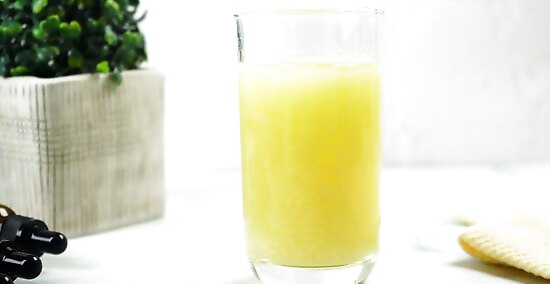
Taking the yeast by mouth once a day may help clear up your acne. Brewer’s yeast is usually used to make beer and bread, but it has shown promising results as an acne-buster, too! Just dissolve 2 grams of dried brewer’s yeast in juice or water and drink it down. You can do this up to 3 times a day. If you have yeast allergies, diabetes, or Crohn’s disease, avoid this technique. If drinking a shot of yeast sounds unappetizing, try sprinkling it over food instead!
Crushed aspirin paste
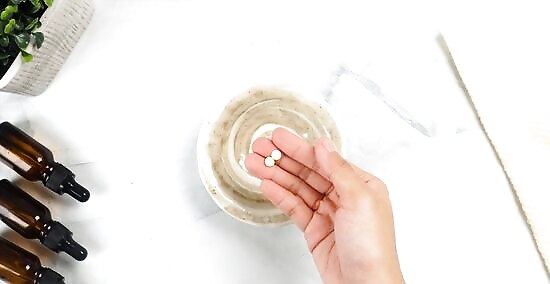
This works best for blackheads and whiteheads. Aspirin soothes irritated skin and has mild exfoliating properties that can help unplug your pores and clear up zits. Just crush up 2 OTC aspirin tablets into a fine powder and mix it with 2 US tbsp (30 ml) of water until it forms a paste. Then, apply the paste to the affected area and rinse it off after 1-2 minutes. Salicylic acid is a popular ingredient in acne products. Aspirin is a simple form of salicyclic acid, which is why it can help knock out your pimples.
Zinc supplements
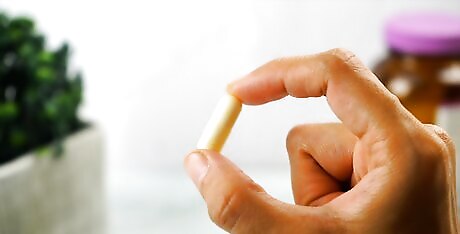
Take 15-30 mg of zinc daily and track your progress after a few weeks. Zinc may help with acne because it encourages wound healing and reduces inflammation. Just don’t take more than the recommended dose since it can make you feel bloated and cause diarrhea. If you notice a metallic taste in your mouth after taking zinc, don’t worry—that's normal. Studies have shown that zinc supplements can help clear up mild to moderate acne. If you experience serious symptoms like nausea, vomiting, loss of appetite, stomach cramps, diarrhea, and headaches, stop taking the supplement.
Cold and warm compresses
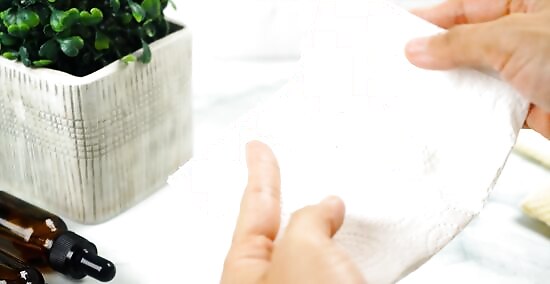
The cold soothes swelling and the warmth helps to draw out pus. Wrap an ice cube in a paper towel and hold it over the pimple for 5-10 minutes. Take a 10-minute break before applying the ice for another 5-10 minutes. Then, soak a clean washcloth in warm water and hold it over the affected area for 10-15 minutes. You can repeat this process 3-4 times a day.
DIY face scrub
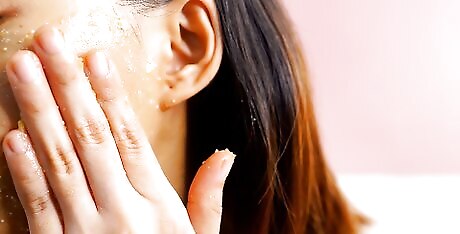
Whip up a simple face scrub once a week to fight blackheads. Exfoliating helps with acne because it removes dead skin and helps clean out your pores. Mix your ingredients together, apply the scrub, and gently massage your skin using circular motions for 3-5 minutes. Rinse thoroughly with warm water and pat your skin dry. For a simple acne-busting scrub: peel and mash 1 whole kiwi, stir in 2 tsp (4.2 g) of brown sugar, and add a few drops of olive oil. Be careful not to overdo it since exfoliating too often can make your acne worse. 1-2 times a week is plenty.
Witch hazel
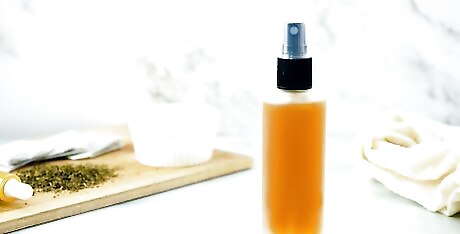
Use witch hazel as a refreshing toner after washing your face. Just wet a cotton ball or pad with the witch hazel and swipe it over your freshly washed skin. Then, follow up with your favorite moisturizer. Witch hazel has some antibacterial and anti-inflammatory properties that may help fight acne and reduce redness. You can buy witch hazel at most drug stores and online.
Daily cleansing
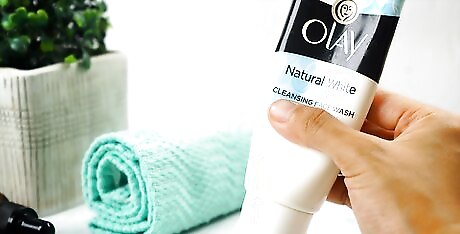
Wash your face twice a day with a gentle cleanser. Sticking to a simple cleansing routine is one of the best ways to combat acne. To keep your skin clear, wash once in the morning and once at night before bed. Apply a gentle, non-abrasive cleanser with your fingertips, massage gently, and rinse with lukewarm water. Sweating can make breakouts worse. If you play sports, exercise, wear a helmet, or just naturally sweat a lot during the day, try to wash your face as soon as you can.



















Comments
0 comment